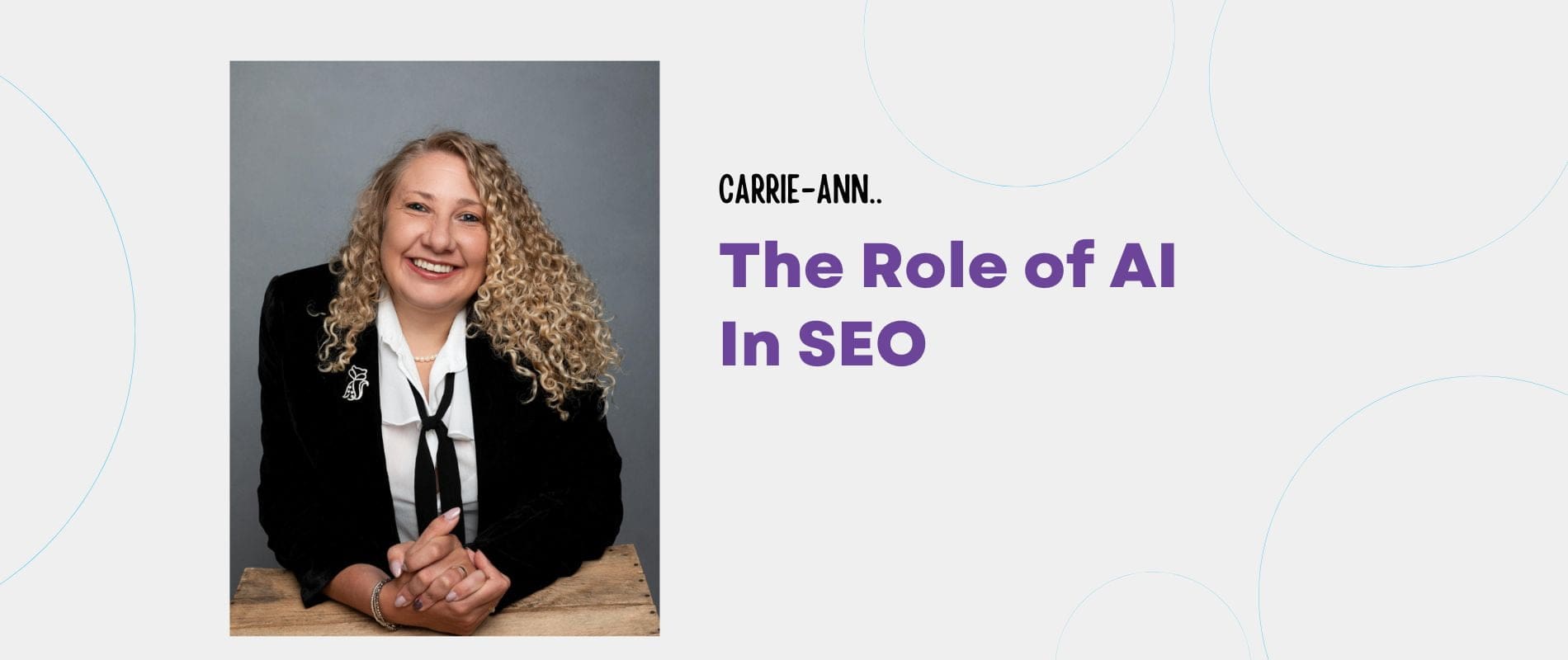
The Role of AI in SEO
It’s no secret that generative AI is now being integrated into increasing numbers of processes and workflows, which is causing some anxiety amongst search engine optimisation (SEO) professionals who are wondering whether more tech sector layoffs are on the horizon. For moments even I worried and I have been in the SEO industry for many years.
Given that hundreds of workers were laid off by Google in January 2024, these anxieties are not completely unfounded, particularly because it became clear that these layoffs occurred as Google moved its focus more towards the development of AI.
But are optimisation experts going to be completely replaced? No.
How Exactly is AI Impacting SEO?
In the not so distant past, completing the majority of SEO tasks was extremely time consuming. Conducting some basic landing page optimisation could take several hours to complete, even for a skilled professional, and developing a robust content strategy for a business operating in a competitive niche could easily take several weeks.
But AI is changing the game and offering SEO professionals the opportunity to streamline their processes and free up valuable time that is better invested elsewhere. Let’s take this opportunity to look at some specifics here.
– Enhanced SEO Tools
AI is already making things like competitor analysis, keyword research and content optimisation more efficient. How? Because it has the ability to process huge quantities of data faster than a human ever could, offering better insights into important metrics that can be used to refine SEO strategies and drive better outcomes.
– Content Creation
AI also has the ability to support the content creation process (note support being the key role here). Think of AI as an ideas creator, someone sitting next to you brainstorming with you.
There are some AI limitations here that are important to highlight here.
AI isn’t able to create content that meets trustworthiness, expertise and authoritativeness standards set out by search engines. In fact, you should always assume that all AI generated content has some accuracy or quality issues that need to be fixed by a human before being published. This is the ONLY course of action when using the automation in this way.
Additionally, having someone edit a piece of content created by AI is the only way to guarantee that it has a tone that is consistent with the brand’s tone of voice and feels authentic because AI just doesn’t have the level of empathy or creativity that we do.
The reality is that you’ll often find the editing work is more time-consuming than creating content the ‘old school’ way. There is also an argument that if 40,000 people world-wide use AI to create an outline or a wireframe for a piece of content, you’re going to get 40,000 very similarly structured and focused pieces, no matter how much you edit them. Contrast that with the use of 40,000 highly individualised human creators.
Google is adopting a strict policy when it comes to AI generated content. As part of an update to its algorithm made in March 2024 [2], manual actions were applied to websites that had been sharing large quantities of AI generated content that clearly had not been edited by a human.
As part of its scaled content abuse policy, Google will continue to penalise websites that are producing large amounts of content that don’t deliver value to its audience. This highlights the need for brands to focus on creating high quality, informative and factually accurate content designed to meet the needs of a very specific audience. This is something that AI just can’t achieve.
Will SEO Change Forever?
Google is using AI to power its Search Generative Experience (SGE), so it stands to reason that SEO is likely to experience some significant changes over the coming years.
Search engines are constantly going to be finding new ways to use AI to improve their algorithms, which means that everyone working in the optimisation field will also need to devise new strategies that will help businesses to perform better than their direct competitors and reach audiences in meaningful ways. Just as AI is helping search engines, it can also be used by SEO professionals to forecast emerging trends and seek out new opportunities before anyone else.
AI could be used to analyse updates being made to search algorithms and provide tactical recommendations to capitalise on those updates. But while AI undoubtedly has all these different capabilities, SEO professionals are still going to be required to interpret these findings and devise fresh, new ways to implement these insights to secure results that actually help businesses to achieve their core objectives.
The Creative Issue
AI is smart but it’s not creative. Models are trained using information and data that’s already out there, so it can’t look beyond those parameters. While it can deliver insights and data that fuel strong SEO strategies, it can’t interpret information in the same way a human can.
AI doesn’t have the ability to accurately identify which tactics are best suited to achieving a particular goal. Nor does it have the creativity to create content that is nuanced, persuasive and engaging enough to build a sense of trust between a business and its audience.
It’s not a stretch to say that without skilled optimisation experts to think strategically, craft compelling messaging and understand the needs, wants and desires of a specific audience, purely AI developed SEO strategies will fail to deliver the positive outcomes that businesses need to see in such a competitive online landscape.
In Conclusion
AI is here to stay, which is actually great for optimisation professionals who want to find new ways to drive better outcomes for brands and businesses in the online space. The role of SEOs will need to change. Those who focus on developing a skill set that allows for the proper interpretation of AI-generated insights will continue to thrive in a SEO world where both humans and AI can co-exist.